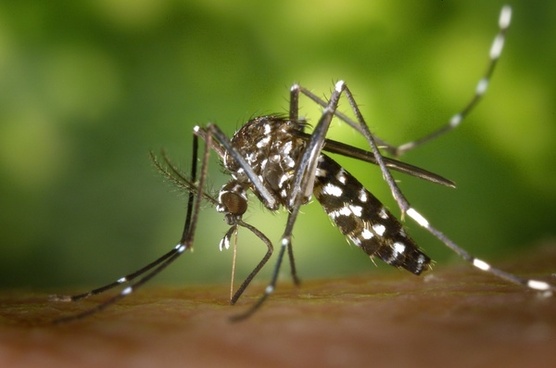
Update On Mosquitoes In Gibraltar
The Government have issued a statement on locally found mosquitoes, highlighting that although they do not normally transport disease, they still recommend avoidance of mosquito bites.
A statement from the Government follows below:
Avoidance of mosquito bites should always be considered as the first line of defence against mosquitoes. Different types of mosquitoes bite at different times of day, and transmit different infections so mosquito bite preventive measures are advisable at all times.
The common Culex mosquito bites mainly during the evening and night time and fortunately this species does not transmit any serious disease. It can however cause a painful swelling, especially in some sensitive individuals and this can get infected subsequently.
The Asian Tiger Mosquito which has been in Gibraltar for a few years now is a daytime biter. The diseases that it can transmit, namely Dengue Fever and Chikungunya are NOT prevalent anywhere near this area so this is not currently a concern. Nevertheless, it is best to take precautions during the day in areas where they prevail. It breeds in areas with well-watered vegetation as it prefers the higher humidity yet locally it has never been found in any street gully.
It breeds in water containers in urban areas (water butts, plant pot dishes, tyres, barrels, discarded containers etc. Persons should check their vicinity for small water containers and empty them out. These mosquitoes are very determined biters. They fly silent, slow and low and usually bite the lower limbs so wearing socks and long trousers is useful.
Public Health Gibraltar recommends the following precautions for travellers:
Before travelling to areas where dangerous mosquito-borne diseases are prevalent, consult your doctor or seek advice from a travel clinic, especially if you have an immune disorder or severe chronic illness.
If you are pregnant or are considering pregnancy, consider postponing non-essential travel.
When staying in a mosquito-prone area, wear mosquito repellents and take mosquito bite prevention measures. If you have symptoms within three weeks of return from an affected country, consult your doctor. If you have been diagnosed with any of the diseases Zika, Dengue or Chikungunya, take strict mosquito bite prevention measures for 10 days after the fever starts. Please note that some of the symptoms of flu and COVID-19 overlap with mosquito-borne conditions. There is no evidence that mosquitos can spread COVID-19, but headache, fever, muscle aches and bowel upset can all be found in both circumstances.
The above advice is also contained in the GHA leaflet “A Factsheet for Travellers”.
DEET is widely considered the most effective broad spectrum repellent against mosquito bites. Other products may have some repellent effect for short periods of time. The repellent properties of products containing oil of citronella are very short lived. They are not recommended for insect bite protection. Citronella has been withdrawn in Europe.
Mosquitoes cannot bite through loose clothing. Covering up with clothing reduces the amount of skin that can be bitten i.e. high necked clothing with long sleeves and trousers or long skirts. Clothing can be thin, loose and light weight in hot environments. Exposed areas of skin should be covered with an insect repellent that contains no less than 20% DEET or suitable alternative.
Nets are a good option for night time use in some cases. They should be tucked in under the mattresses to avoid entry of insects into the bedding area. The net should allow sufficient space that skin does not rest directly against the net, mosquitoes can still bite through it.
Rooms with mosquito screens on windows and doors should be checked to ensure that there are no holes in the screens or gaps between the panels that would allow entry. Using Velcro and mesh these can easily be constructed.
Air conditioning used properly and constantly provides a sealed environment and insects are less likely to enter such rooms. They also do not like the movement of air and the colder environment. Good flow of air is important in reducing the spread of COVID-19, so you may prefer to put netting on windows/doors and use mechanical fans. Air-conditioning where it is set on recirculation tends to encourage the spread of COVID-19 and so is not to be encouraged at this time.
Pyrethroid products such as plug-ins or candles/coils may be used in addition to bed nets and/or mosquito screens but should not be solely relied upon.
Common Fallacies
Tea Tree Oil – there is no evidence to suggest tea tree oil is effective at repelling mosquitoes.
Buzzers – (emitting high frequency sound waves) are ineffective as mosquito repellents. Companies selling them have been prosecuted and fined in UK under the Trades Descriptions Act and they should not be used.
Vitamin B1 and Vitamin B12 – there is no evidence that these repel mosquitoes.
Garlic and yeast extract - there is no evidence that these repel mosquitoes when taken orally or topically!






